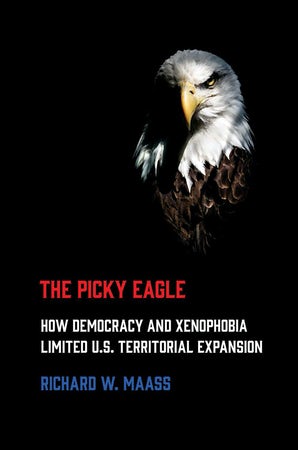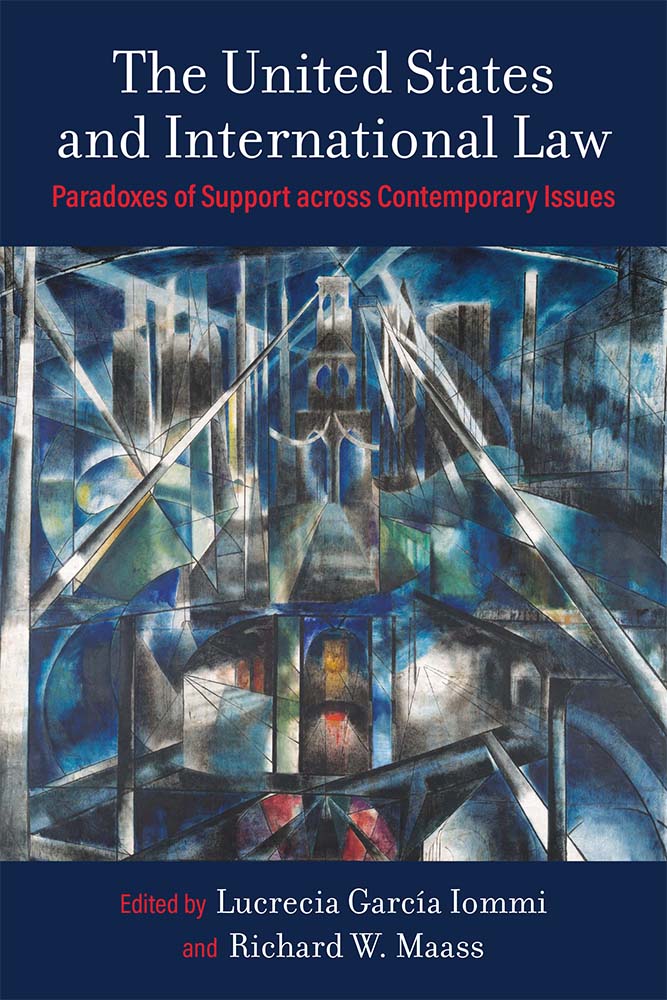Legal Deterrence by Denial: Strategic Initiative and International Law in the Gray Zone
In 2025, I published an article in Texas National Security Review thinking through how international law can best be used to help deter gray zone aggression. International security competition in the twenty-first century is likely to remain largely within the “gray zone”—a category of aggressive activities that threaten core aspects of statehood while avoiding the threshold of armed force that has traditionally legitimized military retaliation in self-defense. Gray zone activities lend strategic initiative to the aggressor, confronting defenders with difficult response decisions and often incentivizing them to tolerate relative losses rather than risk escalating conflict. International law and norms have indirectly helped constitute the gray zone, and they can also play a key role in helping to deter future gray zone threats. Combining strategic and legal analysis, this article explores the relationship between international law and the gray zone, develops a strategy of legal deterrence by denial tailored to address the central dilemma of strategic initiative, and lays the foundations for defensive-minded policymakers to undercut revisionist lawfare and deter gray zone aggression.
Whitewashing American Exceptionalism: Racialized Subject-Positioning and US Foreign Policy
In 2024, I published an article in International Studies Quarterly on racialized subject-positioning in American exceptionalism. American exceptionalism is enjoying a revival of scholarly interest amid new approaches to studying foreign policy narratives and unease regarding how US policymakers will manage a less unipolar international system. That revival coincides temporally, though not yet substantively, with growing attention to racialized dynamics and Eurocentrism within international relations. This article examines how core strands of American exceptionalism—the prevailing narrative framing of US foreign policy—reflect a whitewashed understanding of US foreign policy that can best be understood as the product of racialized subject-positioning that saturated its historical development. After conceptualizing American exceptionalism, it develops a theoretical framework to capture how racialized subject-positioning stratifies understandings of a nation’s role in the world. It proceeds to investigate how this process shaped the development of American exceptionalism in line with epistemologies of immanence, ignorance, and innocence, producing exceptionalist narratives that neglect non-white populations as meaningful others in the construction of US national identity and that negate US interactions with those groups as relevant evidence that might undercut its exceptionalism. These whitewashing effects remained embedded even as overtly racist discourse became delegitimized, posing enduring obstacles for US diplomacy today.
Racialization and International Security
In 2023, I published an article in International Security on racialization and international security, exploring how the processes that infuse social and political phenomena with racial identities and implications shape core questions of interest to security scholars. Despite the field’s consistent interest in power, international security studies in the United States largely omitted racial dynamics from decades of debates about international conflict and cooperation, nuclear proliferation, power transitions, unipolarity, civil wars, terrorism, international order, grand strategy, and other subjects. In this article, I argue that racialization is itself an assertion of power, a claim of purportedly inherent differences that has saturated modern diplomacy, order, and violence. The article lays conceptual bedrock, links relevant literatures to major research agendas in international security, cultivates interdisciplinary dialogues, and charts promising paths to consider how overt and embedded racialization shape the study and practice of international security. A discussion of several research design challenges for integrating racialization into existing and new research agendas helps scholars reconsider how they approach questions of race and security. Beyond diversifying the professoriat itself, revealing and countering embedded biases are crucial to determine how alternative ideas have been marginalized, and, ultimately, to develop better theories.
Salami Tactics: Faits Accomplis and International Expansion in the Shadow of Major War
In 2021/2022, I published an article in the Texas National Security Review on salami tactics—using repetitive, limited faits accompli to expand influence without provoking major retaliation. Despite the policy relevance of this concept—an expansionist method of choice for revisionist Russia and rising China—the term remains largely colloquial. Under what circumstances are salami tactics useful, and what can adversaries do to thwart them? In this article, I model the conditions under which salami tactics offer an appealing foreign policy. Pairing game theory with process tracing, I evaluate the resulting hypotheses using case studies of the U.S. annexation of Florida and Russian expansion in Georgia and Ukraine, yielding productive recommendations for policymakers.
Building on this article, in June 2022 I recorded a Conversation Six interview with Alexander Lanoszka discussing the role of salami tactics in Russian foreign policy toward Ukraine, including how its 2022 full-scale invasion defied the salami-tactics playbook it had previously employed.
DiploSim: A Flexible Framework for Diplomatic Simulations in International Relations
I have used simulations in pedagogy for a long time, and I frequently run into colleagues interested in doing so but wary of the time investment required. Concerns about sacrificing valuable class time, imperfect fit between published designs and their existing syllabi, and the formidable time investment required to design a simulation from scratch often impose psychological barriers that deter instructors from using this excellent pedagogical tool. In this article in International Studies Perspectives, I review the pedagogical benefits of simulations, highlight the key mechanisms that generate those unique benefits, and confront the major obstacles to their use. Seeking to help curious but hesitant instructors take advantage of active learning techniques, I offer a framework for diplomatic simulations (DiploSim) that is easily customizable to a broad range of course contents and schedule formats while maintaining the key aspects that make simulations a special pedagogical experience.
Check out its handy 1-page-front-and-back customization form next time you’re thinking about adding a simulation to one of your classes. For those interested, I will be running a workshop using this framework as part of the TLC@APSA conference in Fall 2022. Come join us!
NATO, Enlargement, and Resilience
In 2024 I co-edited a volume with my ODU colleague Regina Karp collecting papers written by participants in NATO’s 2024 academic conference, hosted by ODU. Titled “Alliances and Partnerships in a Complex and Challenging Security Environment,” it is accessible here.
In 2023 I published a paper with two ODU graduate students in NATO’s OPEN Publications series, examining how recent and potential future enlargement of NATO affects the alliance’s resilience at both the domestic and collective levels and across the civil, military, and political domains. That paper is available here.
The Picky Eagle: How Democracy and Xenophobia Limited U.S. Territorial Expansion
My first book, The Picky Eagle (Cornell University Press, 2020), explains why the United States stopped annexing territory by focusing on annexation’s domestic political and normative consequences. In addition to offering an updated history of the foundations of U.S. territorial expansion, it adds important nuance to previous theories of great-power expansion, with implications for our understanding of U.S. foreign policy and international relations.
In contrast to conventional accounts of a nineteenth-century shift from territorial expansion to commercial expansion, I argue that U.S. ambitions were selective from the start. Offering domestic impact theory as an improvement upon existing theories that prioritize the profitability of conquest, The Picky Eagle tests it across 23 case studies examining the decision-making of U.S. leaders facing opportunities to pursue annexation between 1775 and 1898. U.S. presidents, secretaries, and congressmen consistently worried about how absorbing new territories would affect their domestic political influence and their goals for their country. These leaders were particularly sensitive to annexation’s domestic costs where xenophobia interacted with their commitment to democracy: rather than grant political representation to a large alien population or subject it to a long-term imperial regime, they regularly avoided both of these perceived bad options by rejecting annexation. As a result, U.S. leaders often declined even profitable opportunities for territorial expansion, and they renounced the practice entirely once no desirable targets remained.
A related article on the War of 1812 was published in Diplomatic History in 2015:
Richard W. Maass, “‘Difficult to Relinquish Territory Which Had Been Conquered’: Expansionism and the War of 1812,” Diplomatic History 39, no. 1 (January 2015), 70-97.
This article aims to end the pervasive myth that the United States was trying to annex Canada during the War of 1812. It was not (for reasons introduced here and discussed in greater depth in The Picky Eagle).
The United States and International Law: Paradoxes of Support across Contemporary Issues
My second book, The United States and International Law: Paradoxes of Support Across Contemporary Issues, a volume co-edited with Lucrecia García Iommi (Fairfield University), was published by the University of Michigan Press in 2022. It explores variations in U.S. support for international law using a shared framework and new five-part conceptualization of support (leadership, consent, internalization, compliance, enforcement) and bringing together experts across twelve diverse issue areas: conquest, world courts, the use of force, nuclear proliferation, trade, human rights, war crimes, torture, targeted killings, law of the sea, environmental politics, and cybersecurity.
Disaggregating support along these five dimensions enables us to investigate paradoxes of support in U.S. foreign policy – areas in which the United States supports international law along one dimension while undermining it along another. Our contributors offer compelling analyses within their own issue areas, and drawing on those analyses enables us to draw conclusions about the multifaceted U.S. relationship with international law.
With its intuitive conceptual framework and original research contributions spanning diverse areas of international law, this volume is an excellent resource for scholars as well as graduate and undergraduate students of international law or U.S. foreign policy.
Other Publications
My November 2015 piece Want to help the Islamic State recruit? Treat all Muslims as potential terrorists on The Monkey Cage @ The Washington Post was named the Best Post of the Year by the International Studies Association’s Online Media Caucus. I continue to be heartened by its usefulness in generating conversation on such an important issue.

Other published research of mine includes:
A correspondence regarding historical, causal, and moral questions surrounding NATO expansion, published in International Security, Vol. 41, No. 3 (Winter 2016/17), pp. 197-200, and available online here.
A correspondence regarding the utility of military primacy for the United States, discussing critiques of its economic profitability and highlighting its benefits for U.S. national security, published in International Security, Vol. 38, No. 4 (Spring 2014), pp. 188-205, and available online here.
An article, co-authored with Eteri Tsintsadze-Maass, developing groupthink as a cause of irrational terrorist radicalization and demonstrating the plausibility of the mechanism through an in-depth case study of the Weather Underground. This article is published in Terrorism and Political Violence, Vol. 26, No. 5 (October 2014), pp. 735-58, and is available online here.
An article applying quantitative content analysis to Cicero’s major political writings to draw meaningful distinctions between his use of the concepts civitas and res publica, and applying the resulting insights in a reinterpretation of his ideal state as a political society supported by the three pillars of justice, a mixed constitution, and active citizenship. This article is published in Historical Methods, Vol. 45, No. 2 (April-June 2012), pp. 79-92, and is available online here.
I have also reviewed several interesting books:
Mark Shirk’s Making War on the World: How Transnational Violence Reshapes Global Order in Journal of Strategic Security
Frank Ninkovich’s The Global Republic: America’s Inadvertent Rise to World Power in The Register of the Kentucky Historical Society
Dale Copeland’s Economic Interdependence and War at H-Diplo
Jeffrey Meiser’s Power and Restraint: The Rise of the United States, 1898-1941 in Political Science Quarterly
Philippe Le Billon’s Wars of Plunder: Conflicts, Profits and the Politics of Resources at H-War
I welcome correspondence regarding any and all of my research at: RMaass@ODU.edu

